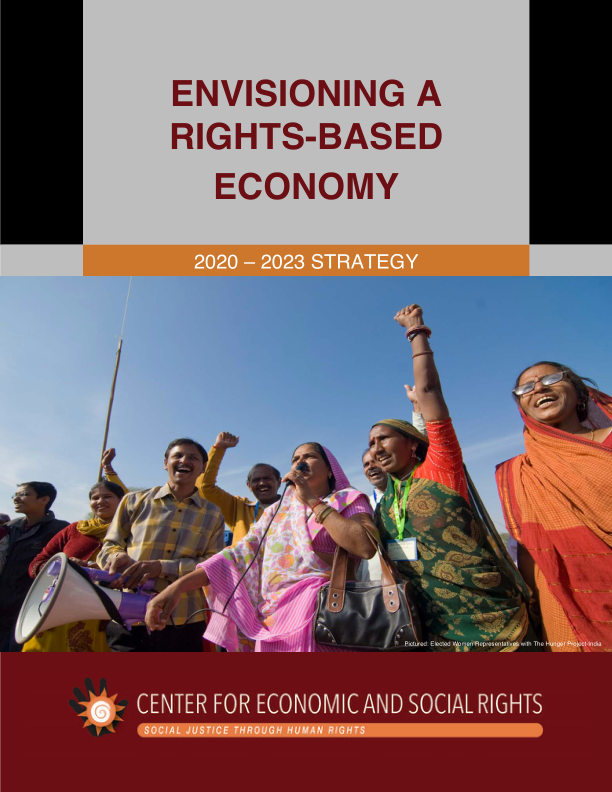
Envisioning a Rights-Based Economy: CESR’s Strategy 2020-2023
What would our economies look like if their aim was to guarantee that everyone can live life with dignity while respecting planetary boundaries—rather than solely boosting GDP growth? What would this mean for how our societies could be organized and resources distributed fairly—to the benefit of all?

This is a moment ripe for mobilization towards systemic change. Economic solutions that would have been unthinkable a short time ago are now on the table and there are growing calls for a “just recovery” to the COVID-19 pandemic in order to “build back better.” But policymakers are unlikely to deliver on these calls without active cross-movement mobilization. We believe that strategies and tactics grounded in a holistic and progressive vision of human rights—one that centers people’s inalienable socioeconomic rights—can play an important role in achieving this.
In support of our goal to advance a rights-based economy, we will focus our energies on three programmatic objectives we’ve set ourselves for the next three years:
1. Aligning around a vision for a just economic transition. We will work with partners across movements to co-design a blueprint for a rights-based economy. Key pillars will include: human and ecological wellbeing, including of future generations; effective provisioning of public goods; robust worker protections; meaningful democratic control over public finance; redistributive policies to redress entrenched inequalities; and reforms in global economic governance.
2. Developing cross-movement approaches. To foster cross-movement collaboration across different strands and silos of civil society advocacy, we will build up literacy in linking human rights to economic justice. From Afro-descendant communities in the Andean region to groups affected by resource extraction in Southern Africa, we will deploy innovative methods to highlight the human impacts of specific economic policies in different settings in order to reveal the systemic flaws fueling inequality and deprivation worldwide.
3. Boosting our collective counter-power to advance fiscal justice. Disparate movements are increasingly converging around the call for progressive tax systems. To build greater momentum around this agenda, we will consolidate and expand the coalitions we have helped and strengthen alliances with labor and women’s rights movements on these issues.
Our work will tap the potential of human rights—particularly economic and social rights—as a redistributive and transformative agenda, in order to shift the narrative about the role human rights can play in advancing systemic economic change. We’ve identified a number of ways to enhance our capacities and diversify our capabilities to support these objectives.
We’re excited about the potential long-term impact of this strategy and the important work it has already begun to spur. The gravity of the context in which it was developed has strengthened our resolve to rise to the urgent challenge of putting rights at the center of our economies.
Image: Elected Women Representatives with The Hunger Project-India